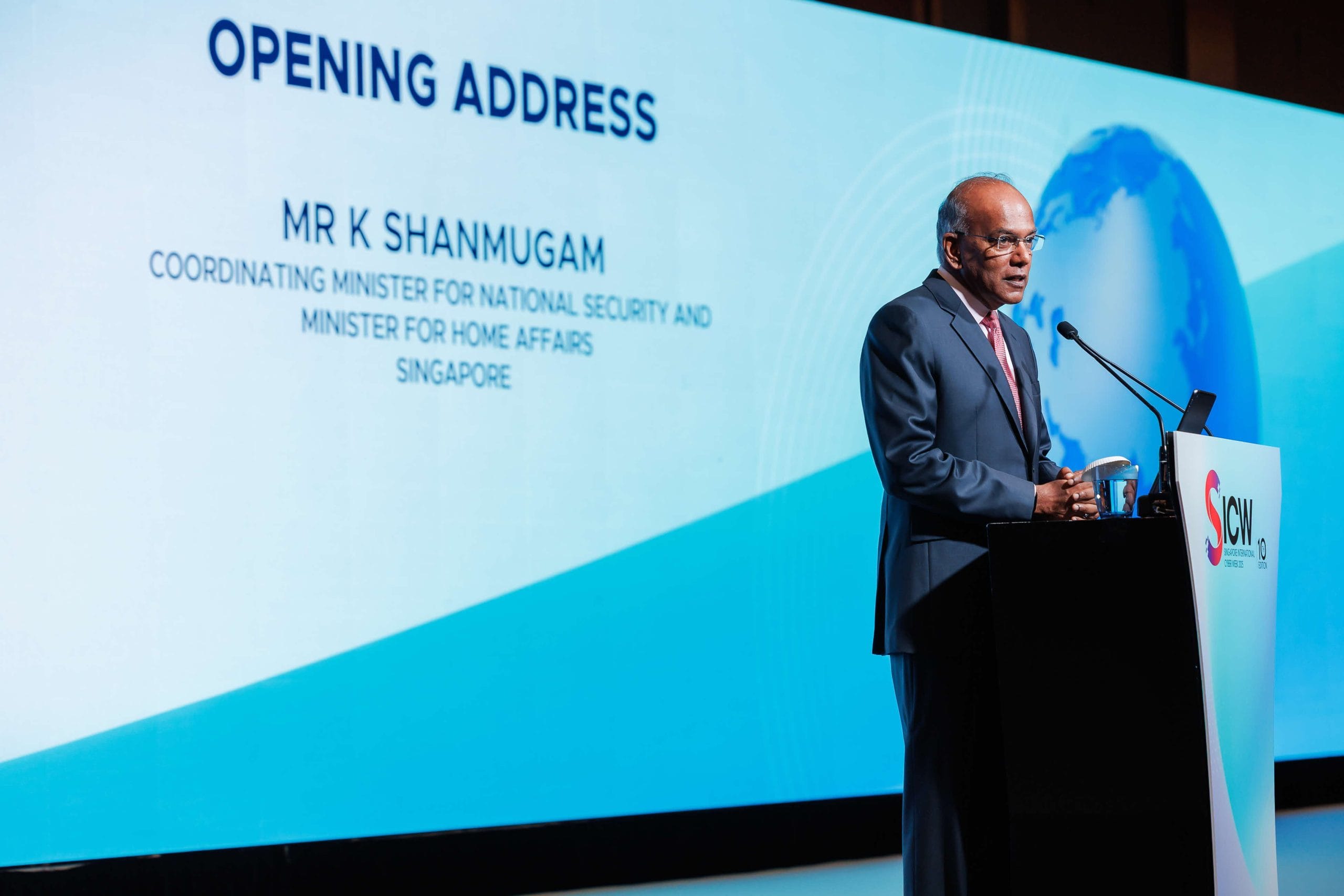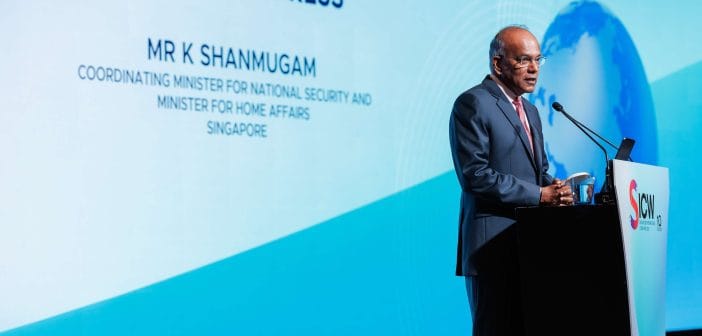
Singapore International Cyber Week (SICW) 2025 opened this week with a powerful message — cybersecurity has become the defining currency of trust in the digital economy, and cooperation across governments, industries, and technologies is essential for a secure Indo-Pacific.
Held from 20 to 24 October, the annual event — organised by the Cyber Security Agency of Singapore (CSA) — brought together policymakers, researchers, and industry leaders from around the world. With over a dozen new partnerships and policy announcements, SICW 2025 reinforced Singapore’s growing influence as a regional nexus for cyber diplomacy and technological innovation.
For Australia and its regional partners, the outcomes of this year’s forum reflect a deepening alignment around shared security priorities — from defending against quantum-era threats to establishing global standards for IoT and AI.
Global Alliances for a Trusted Digital Future
Among the most notable announcements, the United Nations and CSA confirmed a three-year extension of the UN-Singapore Cyber Programme (UNSCP), aimed at equipping developing nations with the expertise to manage cyber risks and critical infrastructure protection. The initiative reflects a model Australia has long advocated — strengthening cyber resilience through skills, governance, and international partnerships rather than isolation.
Singapore also advanced cross-border cooperation through a new cybersecurity Memorandum of Understanding (MoU) with the United Kingdom, establishing mutual recognition of IoT security labels. Under the agreement, connected devices certified under Singapore’s Cybersecurity Labelling Scheme (CLS) will be automatically recognised as compliant with the UK’s Product Security and Telecommunications Infrastructure (PSTI) Act.
This development carries significance beyond the two nations — it represents a blueprint for mutual trust frameworks that could underpin the future of global technology trade.
Meanwhile, the Global Cybersecurity Labelling Initiative (GCLI), a multilateral effort led by Singapore and supported by international partners, issued a Joint Statement reinforcing a shared commitment to harmonising connected-device standards. It’s a move that echoes Australia’s own ambitions to drive interoperability across cyber regulations through the ASEAN-Australia Digital Trade Framework.
Strengthening ASEAN Coordination
SICW also marked a milestone for the region’s collective defence readiness, as CERTs from all ASEAN member states convened in Singapore for the 20th ASEAN CERT Incident Drill (ACID) — the first to be held in person.
The exercise tested incident response procedures and communication channels across national boundaries, with participation from dialogue partners and observers, including Australia.
Ir. Dr. Megat Zuhairy Megat Tajuddin, Chief Executive of Malaysia’s National Cyber Security Agency and Coordinator of the ASEAN Regional CERT Task Force, said the exercise demonstrated how “regional trust and shared experience are now critical pillars of cyber defence.”
For Australia — a dialogue partner of ASEAN’s cybersecurity initiatives — such exercises strengthen the operational foundation for information sharing and joint response in an increasingly contested digital landscape.
Private Sector Leadership and Emerging Technologies
The private sector played an equally central role at SICW 2025, reflecting how cybersecurity innovation increasingly depends on industry leadership and collaboration.
The Singapore Business Federation (SBF), in partnership with SGTech and SCCCI, launched the Cyber Resilience Centre to help small and medium-sized enterprises (SMEs) improve their cyber hygiene and recovery readiness. Backed by CSA, the centre provides businesses with access to a cyber helpline, technical assessments, and incident management guidance — an approach mirroring the growing SME support initiatives in Australia under the Cyber Wardens Program.
In the blockchain space, TRM Labs announced a landmark partnership with CSA to deploy AI-powered blockchain intelligence tools that will trace ransomware payments and illicit crypto activity. The collaboration is among the first in Asia to apply agentic AI systems to national-level financial threat monitoring.
CSA also unveiled “Securing Agentic AI”, a new addendum to its AI security framework that provides guidance for securing autonomous AI systems — a topic increasingly relevant to Australia’s critical infrastructure and defence industries.
Quantum-Safe and Cloud-Native Futures
Anticipating the next technological disruption, CSA released a Quantum-Safe Handbook and Quantum Readiness Index (QRI) to help organisations plan their migration strategies before quantum computing renders traditional encryption obsolete.
At the same time, Amazon Web Services (AWS) and CSA announced a Memorandum of Cooperation focusing on cyber defence collaboration, threat intelligence sharing, and joint exercises to protect national infrastructure — a partnership model that closely parallels Australia’s Cyber Shield initiative under its 2023–2030 strategy.
Meanwhile, Google unveiled a new AI-driven cybersecurity program to strengthen national defences, expand public sector protection, and deliver community education programs for small businesses and individuals. Google’s renewed collaboration with CSA marks a shift towards AI-powered national security ecosystems — a trend mirrored in Canberra’s own investments in AI ethics and resilience frameworks.
Securing the Digital Consumer
Among the consumer-facing innovations, CSA launched the Safe App Portal Pilot, a six-month online tool providing transparent safety ratings for mobile applications. The pilot coincided with a Memorandum of Understanding between CSA and the App Defense Alliance (ADA) — led by Google, Meta, and Microsoft — to improve mobile app security and data privacy through coordinated research and standards.
Together, these initiatives signal a growing emphasis on user trust, data transparency, and digital accountability — principles now driving policy convergence across the Indo-Pacific.
Regional Leadership and Australian Engagement
The message from SICW 2025 is clear: cybersecurity resilience depends on collaboration, not competition.
As Singapore continues to strengthen its role as a cyber diplomacy hub, Australia stands as a natural partner — aligned in policy goals, regional security interests, and shared investments in AI, quantum, and critical infrastructure defence.
The Indo-Pacific’s cybersecurity future will be defined not by isolated national efforts, but by how effectively regional actors can integrate innovation, standards, and trust into a cohesive defence fabric.
And with the world watching SICW 2025’s outcomes unfold, it’s evident that the region’s digital resilience is no longer an abstract policy goal — it’s an operational imperative.
Image: Minister Shanmugam at the SICW Opening Ceremony on 21 Oct 2025 Credit: Edelman





